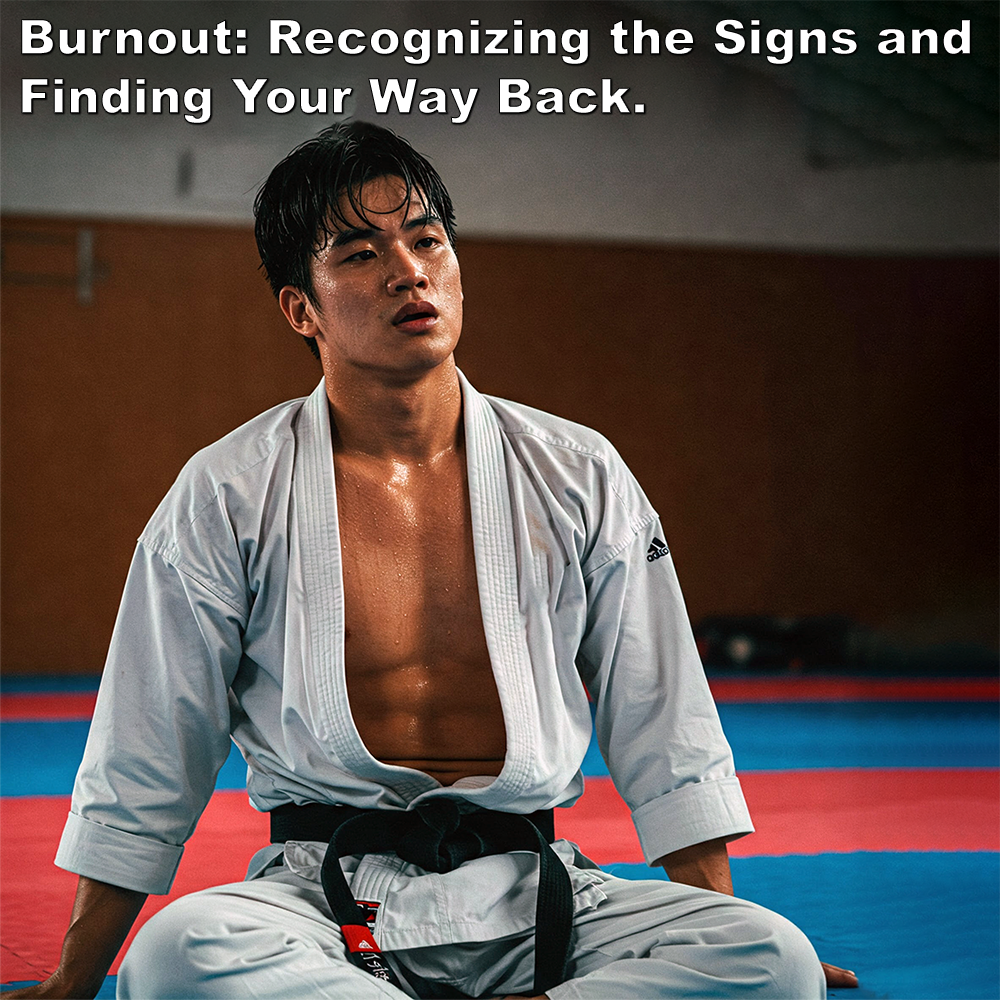
(Approx 2 minute 30 second read)
Even for those who are passionate about the martial arts, especially for those who teach, training can reach a point where it becomes overwhelming. Many times we show up to class simply out of habit, when truthfully our minds or hearts are elsewhere.
.
While the martial arts requires dedication and commitment, the body can only handle so much; build-up of minor injuries, or difficulty in recovering from them, can be a sign that physical burnout has set in.
.
Harder to treat can be the mental and emotional fatigue that sets in, that no one wants to admit, especially for those who are really passionate for what they do.
.
It’s important to remember that the study of the martial arts is a marathon, not a sprint. Slow and steady leads to long term progress and retention of knowledge and skill.
.
For instructors burnout is often not a result of training, but specifically teaching. Leading a class, the planning and preparation of lessons, figuring out how to best explain and demonstrate the material, as well as dealing with people, can be exhausting.
.
Personally, I have trouble giving myself a day off; if there is a class, I feel like I should be there, and unless I am physically incapable of training due to injury, I feel guilty for missing class or for missing my own training.
.
We are not machines. It’s okay to skip a workout or a practice when mind and body are not going to be “in” the process. This is a slippery slope though; it’s important that rest is the exception, and doesn’t become the rule. But once in a while, you just need a day off.
.
If you are really dedicated, you will likely reach a point where you experience these feelings. The important thing is to recognize they are occurring and have a strategy to address them. Admitting that you are exhausted is not a weakness, provided that you have an effective method to recover. If you do, you can get back to training with passion and enthusiasm as soon as possible.
.
If it’s not the rest you need then knowing when to stop teaching or training is hard.
.
Do you “quit while you’re ahead” and ultimately give up doing what you once loved, or do you stick at it, hoping the situation will improve?
.
Your time is the most valuable resource you have, so it’s really important to enjoy what you do.
.
Burnout isn’t a sign of weakness – it’s a natural response to pushing both the body and mind over extended periods. But acknowledging it doesn’t mean giving up – it means giving yourself permission to step back, rest, and recharge. Whether it’s taking a day off or reevaluating your approach to training or teaching, the key is to find balance.
.
Remember, the martial arts are not just about physical strength or skill – it’s also about understanding yourself, and knowing when to listen to your body and mind. The journey may sometimes feel like a sprint, but in reality, it’s the long, steady pace that leads to proficiency and understanding.
.
Ultimately, your time and well-being are your most valuable resources. Train hard, but also take the time to rest, reflect, and rekindle your passion for what you do.
.
Don’t let burnout rob you of the very thing you love most. Find the balance, and keep moving forward with clarity and strength.
.
.
Written by Adam Carter
